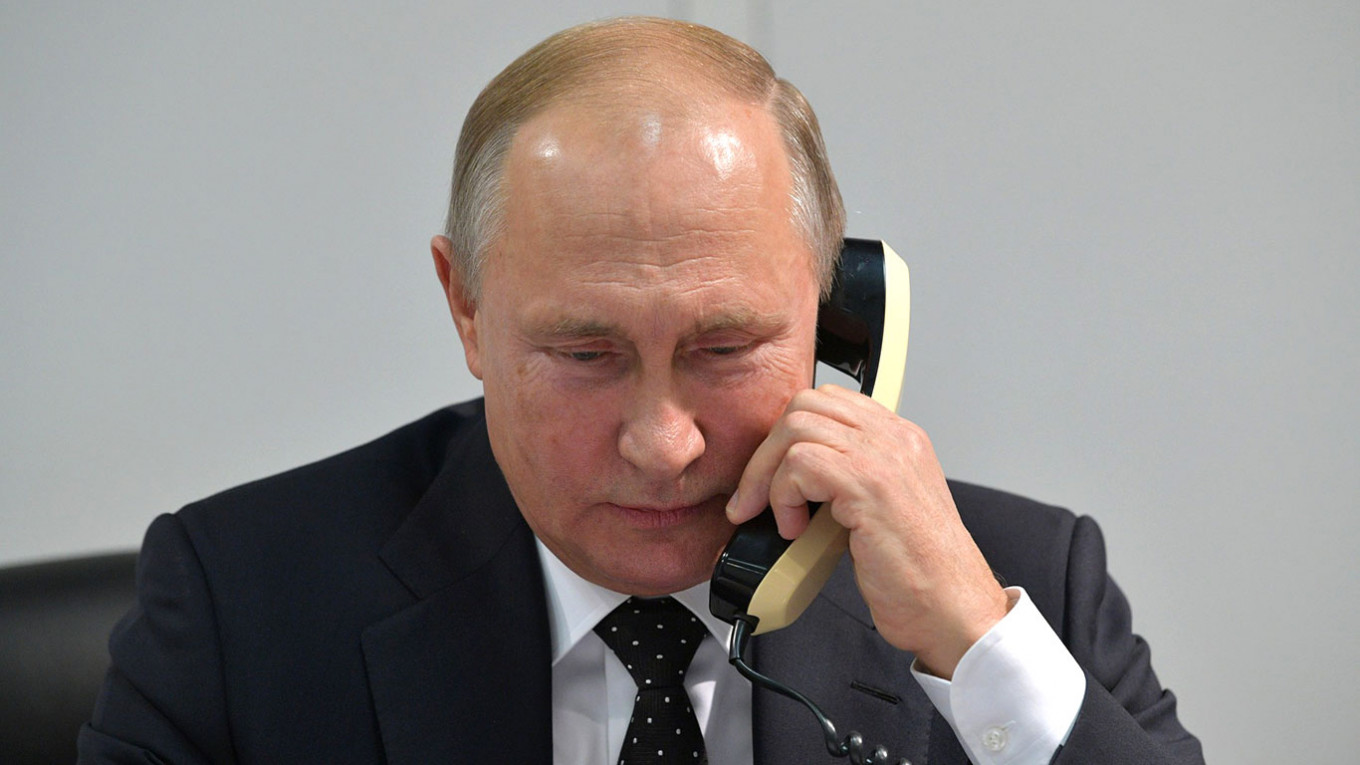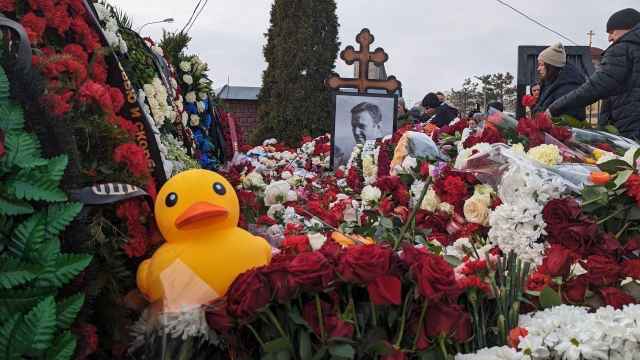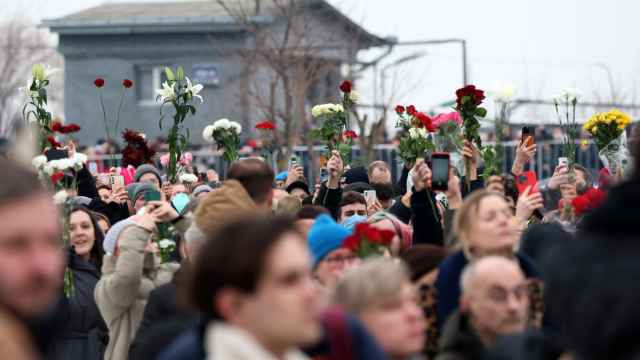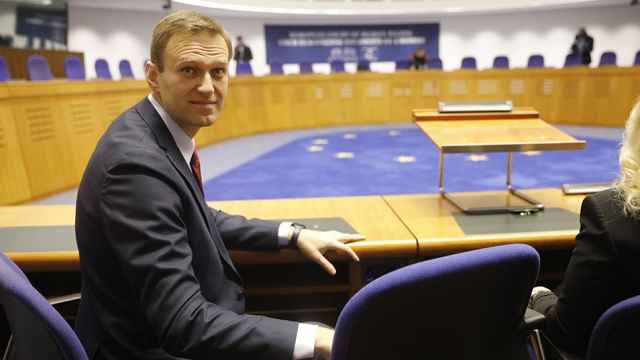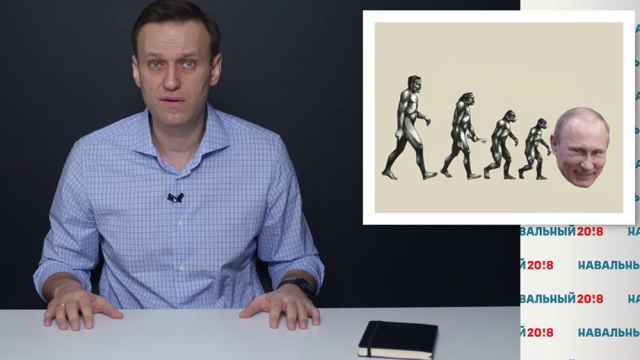The Kremlin has failed to mention French President Emmanuel Macron’s calls for Russian President Vladimir Putin to release his critic Alexei Navalny from jail in its readout of the two leaders’ phone conversation Thursday.
“The president of the republic called for the release of Alexei Navalny, one year after the assassination attempt of which he was the victim, in accordance with the decisions of the European Court of Human Rights,” Macron’s office said in a statement.
The Élysée and the Kremlin both said Macron and Putin discussed the Taliban’s lightning takeover of Afghanistan, efforts to settle the eastern Ukraine conflict and renewed tensions between Armenia and Azerbaijan.
But neither the Kremlin’s Russian- nor English-language readouts make any mention of Macron’s entreaties about Navalny or the French president’s hope that Russia adheres to international standards in upcoming parliamentary elections.
Instead, the Kremlin’s transcript closes with the leaders’ agreement to “maintain personal contact.”
Putin and other high-level Russian officials have a long-running tradition of declining to publicly refer to the Kremlin critic by name or allowing his appearance on state media.
Putin avoids Navalny’s name because of how he views him as a person, his spokesman said in 2017 when asked about the repeated slights.
Thursday’s omission follows a similar discrepancy between the Kremlin and White House transcripts of U.S. President Joe Biden’s first phone talks with Putin when he took office in January. At the time, the Kremlin omitted Biden’s concern over Navalny’s Aug. 20, 2020, poisoning.
In 2017, the Kremlin’s website also edited German President Frank-Walter Steinmeier’s televised remarks, changing his reference to Russia’s “annexation of Crimea” to “Crimea becoming part of Russia.”
Navalny, who is serving 2.5 years in jail on old fraud charges he says are trumped up, faces new criminal charges of “creating a nonprofit organization that infringes on the identities and rights of citizens.” The new charges could extend his sentence by up to three more years.
His movement has faced intensifying pressure in recent months with a court outlawing his political and activist network as “extremist,” blocked websites, close allies being sentenced for “violating coronavirus restrictions” over calls to attend protests and supporters being visited by police after their addresses leaked.
A Message from The Moscow Times:
Dear readers,
We are facing unprecedented challenges. Russia's Prosecutor General's Office has designated The Moscow Times as an "undesirable" organization, criminalizing our work and putting our staff at risk of prosecution. This follows our earlier unjust labeling as a "foreign agent."
These actions are direct attempts to silence independent journalism in Russia. The authorities claim our work "discredits the decisions of the Russian leadership." We see things differently: we strive to provide accurate, unbiased reporting on Russia.
We, the journalists of The Moscow Times, refuse to be silenced. But to continue our work, we need your help.
Your support, no matter how small, makes a world of difference. If you can, please support us monthly starting from just $2. It's quick to set up, and every contribution makes a significant impact.
By supporting The Moscow Times, you're defending open, independent journalism in the face of repression. Thank you for standing with us.
Remind me later.


